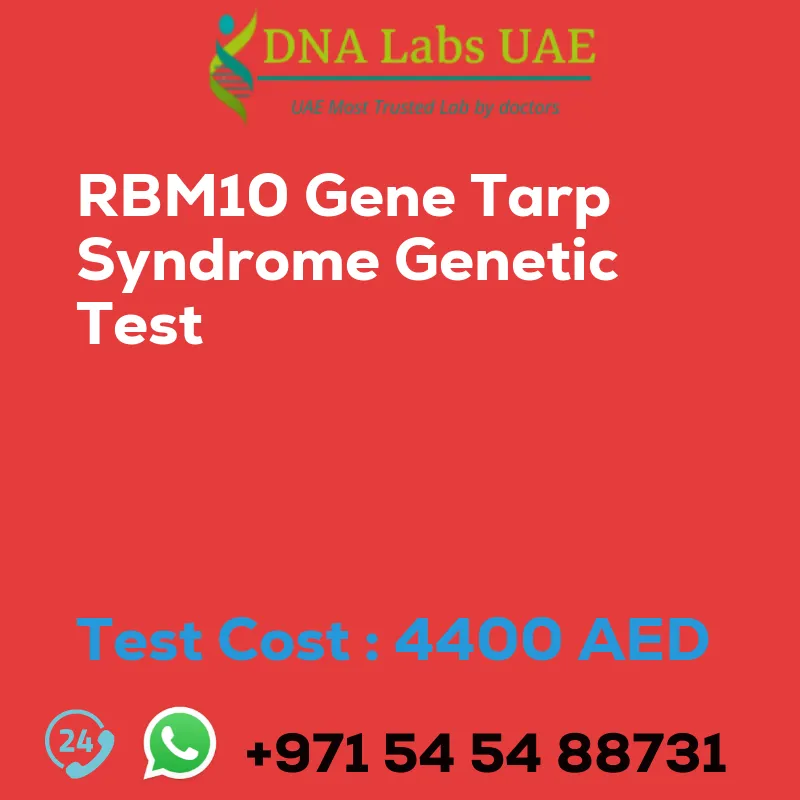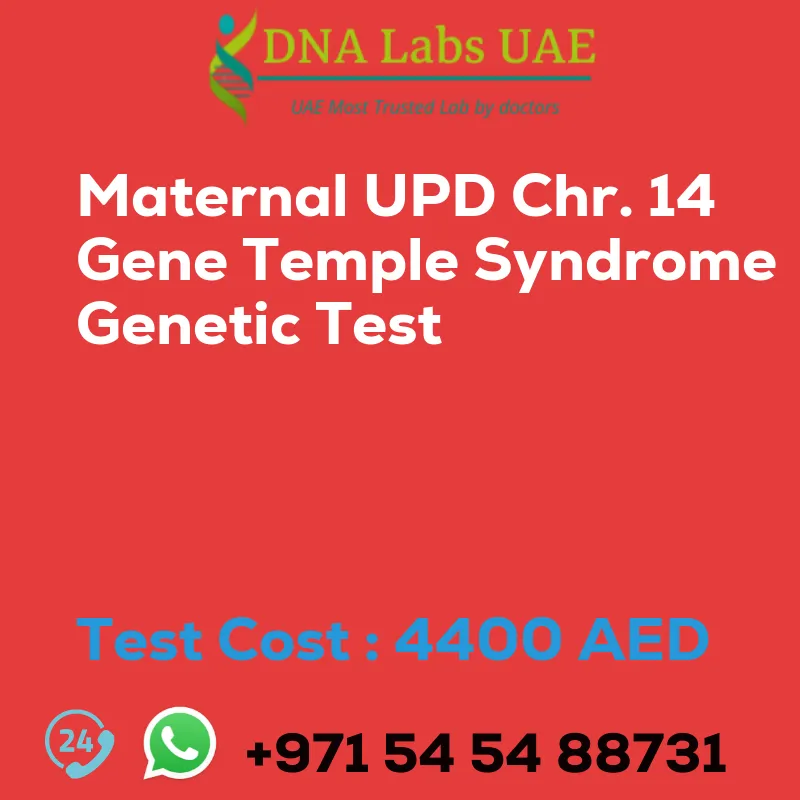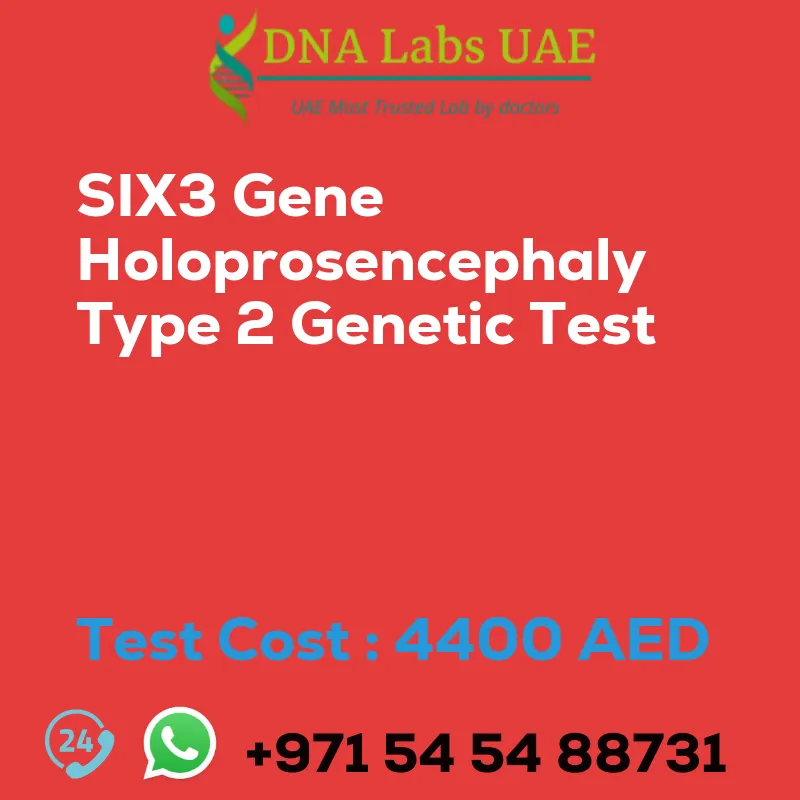
The "Immunosuppressant Drug Profile 1 Test" is a specialized diagnostic examination offered at DNA Labs UAE, designed to monitor and measure the levels of certain immunosuppressive drugs in the bloodstream. This test is particularly crucial for patients who have undergone organ transplants or those being treated for autoimmune diseases, as it helps in ensuring that the dosage of immunosuppressant medication is optimal. By maintaining the right balance, the test aids in preventing organ rejection while minimizing the risk of drug toxicity.
The cost of the test is 1920 AED, reflecting the intricate nature of the analysis and the sophisticated technology utilized to achieve accurate results. Conducted in the state-of-the-art facilities of DNA Labs UAE, the test ensures reliability and precision, providing essential information for the effective management of immunosuppressive therapy. This test is a key component in the personalized treatment plans for patients requiring immunosuppression, enabling healthcare providers to make informed decisions regarding dosage adjustments and overall treatment strategies.

The "Immunosuppressant Drug Profile 4 Test" is a specialized medical examination offered by DNA Labs UAE, designed to measure the levels of certain immunosuppressant drugs in the bloodstream. This test is particularly crucial for individuals who have undergone organ transplantation or those being treated for autoimmune diseases, as it helps in ensuring that the dosage of immunosuppressant medications is optimal. By monitoring the concentration of these drugs, healthcare providers can adjust dosages to prevent organ rejection while minimizing the risk of drug toxicity.
The test covers a specific panel of immunosuppressant drugs, although the exact drugs included in "Profile 4" are not specified here. These drugs typically include agents like cyclosporine, tacrolimus, sirolimus, and mycophenolate mofetil, among others, which are commonly used to suppress the immune system in various clinical scenarios.
Administered at DNA Labs UAE, a facility known for its state-of-the-art diagnostic services, the test ensures accuracy and reliability in results. The cost of the "Immunosuppressant Drug Profile 4 Test" is set at 1920 AED. Given the critical nature of immunosuppressant therapy in transplant and autoimmune disease management, this test plays a vital role in patient care, ensuring that therapeutic levels are maintained for efficacy while reducing the risk of adverse effects.

Prader-Willi Syndrome (PWS) is a rare genetic disorder characterized by a variety of symptoms, including reduced muscle tone, feeding difficulties in early infancy, rapid weight gain and obesity in later childhood, developmental delays, and behavioral problems. It is caused by the loss of function of genes in a specific region of chromosome 15 (15q11-q13). To diagnose PWS, genetic testing is crucial, and among the methods used, karyotyping and Fluorescence In Situ Hybridization (FISH) are prominent.
Karyotyping is a test that allows scientists to examine the chromosomal makeup of an individual by looking at the size, shape, and number of chromosomes. It's useful in identifying large-scale genetic abnormalities, including the presence or absence of chromosomes that can lead to syndromes like PWS.
FISH test, on the other hand, is more precise and can pinpoint deletions or rearrangements in specific chromosome regions. For PWS, the FISH test targets the critical region on chromosome 15 to check for the specific deletion responsible for the syndrome. It uses fluorescent probes that bind to that region of the chromosome, allowing for the visualization of any genetic anomalies under a fluorescence microscope.
In the UAE, DNA Labs offers comprehensive genetic testing for Prader-Willi Syndrome, including both karyotyping and FISH tests. The cost for this combined testing is set at 1650 AED. Conducted in a state-of-the-art laboratory by skilled geneticists and technicians, these tests provide accurate diagnosis and are crucial for the management and treatment planning for individuals with PWS. Early diagnosis through these genetic tests can significantly impact the quality of life for those affected by the syndrome, offering them a chance for timely interventions and support.

The Macroprolactin Test is a specialized diagnostic assessment conducted to measure the level of macroprolactin in the blood. Macroprolactin is a larger molecular form of the prolactin hormone, which, when elevated, can lead to various health issues including infertility, menstrual irregularities, and galactorrhea (unintended milk production). Unlike the standard prolactin test, this test specifically identifies the presence and quantity of macroprolactin, providing a clearer understanding of certain endocrine disorders.
This test is particularly important for patients who have symptoms of high prolactin levels but normal prolactin test results, as it helps in distinguishing between the active and less active forms of prolactin in the body. The process involves a simple blood draw, and the sample is then analyzed for macroprolactin content.
In the UAE, the Macroprolactin Test is available at DNA Labs, a leading laboratory known for its state-of-the-art facilities and accurate diagnostic services. The cost of the test at DNA Labs UAE is 3600 AED, reflecting the specialized nature of the assessment and the sophisticated technology employed in the analysis. Patients seeking this test can expect professional service and reliable results, contributing to better-informed healthcare decisions.

The LIFR Gene Stuve-Wiedemann Syndrome Genetic Test is a specialized diagnostic tool designed to detect mutations in the LIFR gene, which are responsible for causing Stuve-Wiedemann Syndrome (SWS). This rare genetic disorder is characterized by skeletal abnormalities, muscle weakness, and difficulties in regulating body temperature. Early and accurate diagnosis through genetic testing is crucial for managing the symptoms and improving the quality of life of affected individuals.
Conducted at DNA Labs UAE, this genetic test involves analyzing the patient's DNA to identify any mutations in the LIFR gene. The process is meticulous and requires advanced technological tools to ensure accuracy. Given the complexity and the specialized nature of this test, it is priced at 4400 AED. This cost reflects the comprehensive analysis and the expertise required to interpret the results, providing families and healthcare professionals with essential information for the effective management of Stuve-Wiedemann Syndrome.

The RBM10 Gene TARP Syndrome Genetic Test is a specialized diagnostic procedure offered by DNA Labs UAE, designed to detect mutations in the RBM10 gene, which are linked to TARP (Talipes equinovarus, Atrial septal defect, Robin sequence, and Persistent left superior vena cava) syndrome. TARP syndrome is a rare genetic condition that primarily affects males and can lead to a range of developmental issues and physical anomalies, including clubfoot, heart defects, difficulties in breathing and feeding, and distinctive facial features.
This test involves collecting a DNA sample, typically through a blood draw or cheek swab, which is then analyzed in the laboratory to identify any genetic alterations in the RBM10 gene that might indicate the presence of TARP syndrome. The goal of the test is to provide accurate diagnosis, which can be crucial for early intervention, management of symptoms, and genetic counseling for affected families.
At DNA Labs UAE, the cost of the RBM10 Gene TARP Syndrome Genetic Test is set at 4400 AED. The test is conducted with high precision and confidentiality, ensuring that patients and their families receive comprehensive support and information regarding the condition and its implications.

The "Maternal UPD Chr. 14 Gene Temple Syndrome Genetic Test" is a specialized diagnostic tool available at DNA Labs UAE, designed to detect Temple Syndrome resulting from maternal uniparental disomy of chromosome 14 (UPD(14)mat). Temple Syndrome is a rare genetic disorder characterized by a range of symptoms including developmental delays, muscle weakness, feeding difficulties, and distinctive facial features. This condition is caused when a child inherits two copies of chromosome 14 from their mother and none from their father, leading to an imbalance in gene expression.
The test involves a comprehensive analysis of the genetic material to identify the specific chromosomal anomaly associated with Temple Syndrome. It is crucial for early diagnosis and management of the condition, allowing healthcare providers to offer targeted interventions and support to affected individuals and their families.
DNA Labs UAE offers this genetic test at a cost of 4400 AED. The lab is equipped with state-of-the-art technology and staffed by experienced professionals, ensuring accurate and reliable results. Families seeking answers about developmental concerns or individuals with a family history of Temple Syndrome may find this test particularly beneficial. It represents a crucial step towards understanding and managing the condition, offering hope and guidance for affected individuals.

Maternal Uniparental Disomy of Chromosome 7 (UPD(7)mat) is a rare genetic condition that can lead to the development of Silver-Russell Syndrome (SRS), a disorder characterized by growth retardation, distinctive facial features, and asymmetry of limbs or body parts. The genetic test for this condition is crucial for the accurate diagnosis and management of SRS, allowing for tailored treatment plans and interventions that can significantly improve the quality of life for affected individuals.
DNA Labs UAE offers a comprehensive genetic test specifically designed to detect Maternal UPD Chr. 7, providing a critical tool in the diagnosis of Silver-Russell Syndrome. The test involves a detailed analysis of chromosome 7 to identify any abnormalities that may indicate the presence of UPD(7)mat, leveraging advanced genetic sequencing technologies to ensure high accuracy and reliability.
The cost of the test is 4400 AED, reflecting the intricate processes and sophisticated technology involved in conducting this specialized genetic analysis. Conducting the test at DNA Labs UAE ensures that patients and their families have access to state-of-the-art facilities and a team of expert geneticists and counselors, offering support and guidance throughout the testing process and beyond, as they navigate the implications of the results for the patient's care and treatment.

The "IRF6 Gene Orofacial Cleft Type 6 Genetic Test" is a specialized diagnostic procedure offered by DNA Labs UAE, designed to identify mutations in the IRF6 gene, which are linked to orofacial cleft type 6. This condition is a type of craniofacial anomaly that affects the structure of the mouth and face, potentially leading to complications with feeding, speech, hearing, and dental development. The test plays a crucial role in early detection and management of the condition, allowing for timely intervention and counseling for affected families. Priced at 4400 AED, the test involves collecting a DNA sample, typically through a blood draw or cheek swab, and analyzing it for specific genetic alterations in the IRF6 gene. Results from this test can provide valuable information for clinical decision-making, personalized treatment planning, and understanding the risk of recurrence in future pregnancies. DNA Labs UAE ensures high-quality testing standards, offering reliable and accurate genetic testing services for patients and healthcare providers.

The SIX3 Gene Holoprosencephaly Type 2 Genetic Test is a specialized diagnostic procedure aimed at detecting mutations in the SIX3 gene, which are known to cause Holoprosencephaly Type 2, a rare congenital disorder. This condition is characterized by the incomplete development of the brain, leading to significant neurological and facial anomalies. The test involves analyzing the patient's DNA to identify any genetic alterations in the SIX3 gene that might be responsible for the disorder.
Performed at DNA Labs UAE, a leading facility in genetic diagnostics, this test offers families and individuals crucial information regarding the genetic underpinnings of Holoprosencephaly Type 2. Understanding the genetic basis of the condition can aid in making informed decisions about medical care, potential interventions, and family planning. The cost of the test is 4400 AED, reflecting the sophisticated technology and expertise required to accurately identify mutations in the SIX3 gene.











